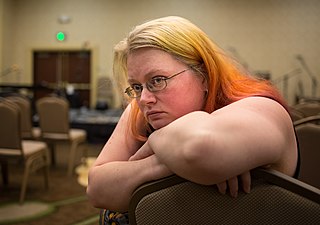A Quote by Adam Morris
Jorge Luis Borges was lamenting a variety of Orientalism that was used to measure the alleged authenticity of Argentine and Latin American writers in the midcentury. The Argentine literary tradition was believed by many, including many Argentines, to be concerned with a national imaginary in which the gauchos and the pampas and the tango were fundamental tropes. Borges, in part to legitimize his own Europhilia, correctly pointed out that expecting writers to engage with these romantic nationalist tropes was arbitrary and limiting, a genre that was demonstrative of its own artificiality.
Quote Topics
American
American Writer
Arbitrary
Artificiality
Authenticity
Believed
Borges
Concerned
Correctly
Engage
Expecting
Fundamental
Genre
His
Imaginary
Including
Latin
Latin America
Latin American
Limiting
Literary
Many
Measure
National
Nationalist
Orientalism
Out
Own
Part
Pointed
Romantic
Tango
Tradition
Tropes
Used
Variety
Were
Which
Writers
Related Quotes
I always read the Latin American writers. I love so many of them: Gabriel García Márquez, José Donoso, Alejo Carpentier, Jorge Luis Borges, Clarice Lispector. I also love a lot of American experimental writers and surrealist European writers. But perhaps The Persian Book of Kings was the greatest influence - I encourage people to look at it. There is such a wealth of incredible stories.
Jorge Luis Borges had the soapbox and the authority to complain about this myopic understanding of the duty of Latin American writers, which sometimes forecloses their unique modernism and experience of modernization in favor of a mythic past or an artificially constructed ideal national subject. So likewise in João Gilberto Noll, readers shouldn't expect samba and Carnival and football. The Brazilian national identity is not one of his primary concerns.
I was an eccentric teenager in suburban New Jersey, in a town mostly interested in sports, popularity, and clothes. A fan of Jorge Luis Borges, I found a group of Borges scholars from Aarhus, Denmark - perfect strangers - whom I connected to online and immediately became enthralled by the idea of virtual communities.
I first got online in the late '80s when I was an eccentric teenager in suburban New Jersey, in a town mostly interested in sports, popularity, and clothes. I was a reader, into Jorge Luis Borges, and I found, connected to, and delighted in a group of Borges scholars from Aarhus, Denmark, that I met online.
The Anglo-American tradition is much more linear than the European tradition. If you think about writers like Borges, Calvino, Perec or Marquez, they're not bound in the same sort of way. They don't come out of the classic 19th-century novel, which is where all the problems start. 19th-century novels are fabulous and we should all read them, but we shouldn't write them.
Nazi Literature in the Americas, a wicked invented encyclopedia of imaginary fascist writers and literary tastemakers, is Bolaño playing with sharp, twisting knives. As if he were Borges's wisecracking, sardonic son, Bolaño has meticulously created a tightly woven network of far-right litterateurs and purveyors of belles lettres for whom Hitler was beauty, truth, and the great lost hope.
Technically and logically speaking, actual Victorian science fiction writers cannot be dubbed 'steampunks.' Although they utilized many of the same tropes and touchstones employed later by twenty-first-century writers of steampunk, in their contemporary hands these devices represented state-of-the-art speculation.
Every writer owes something to a particular tradition he/she grew up in. But no serious writer - other than the militantly nationalist ones - would reduce his/her domain of influence to a single tradition. Furthermore, historical breaks are so common and large in Europe that there are ruptures in every tradition which then connect the same generations across national borders. Younger Eastern European writers, for instance, have more in common with other writers of the same age in Europe, than with the previous, communist-era generations in their own countries.
We have inhabited both the actual and the imaginary realms for a long time. But we don't live in either place the way our parents or ancestors did. Enchantment alters with age, and with the age. We know a dozen Arthurs now, all of them true. The Shire changed irrevocably even in Bilbo's lifetime. Don Quixote went riding out to Argentina and met Jorge Luis Borges there. Plus c'est la même chose, plus ça change.
In many parts of the world, including the Arab world, the Latin American world, and even parts of the Western world, there is a tradition of writers being quite engaged. Particularly in the Arab world you have had very, very strong traditions of literature and poetry and most of the writers have been deeply committed to the cause of the Arab nation.






























